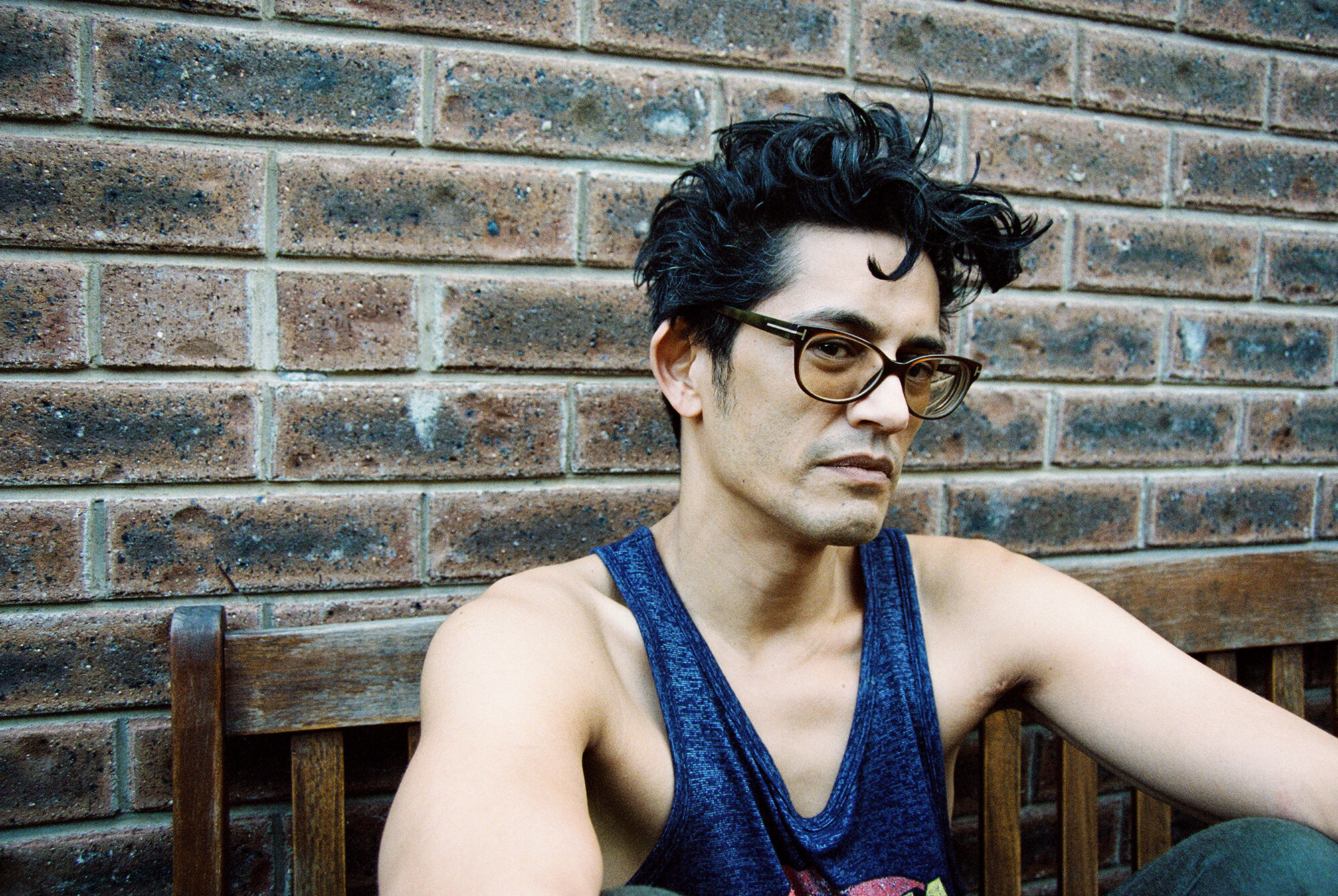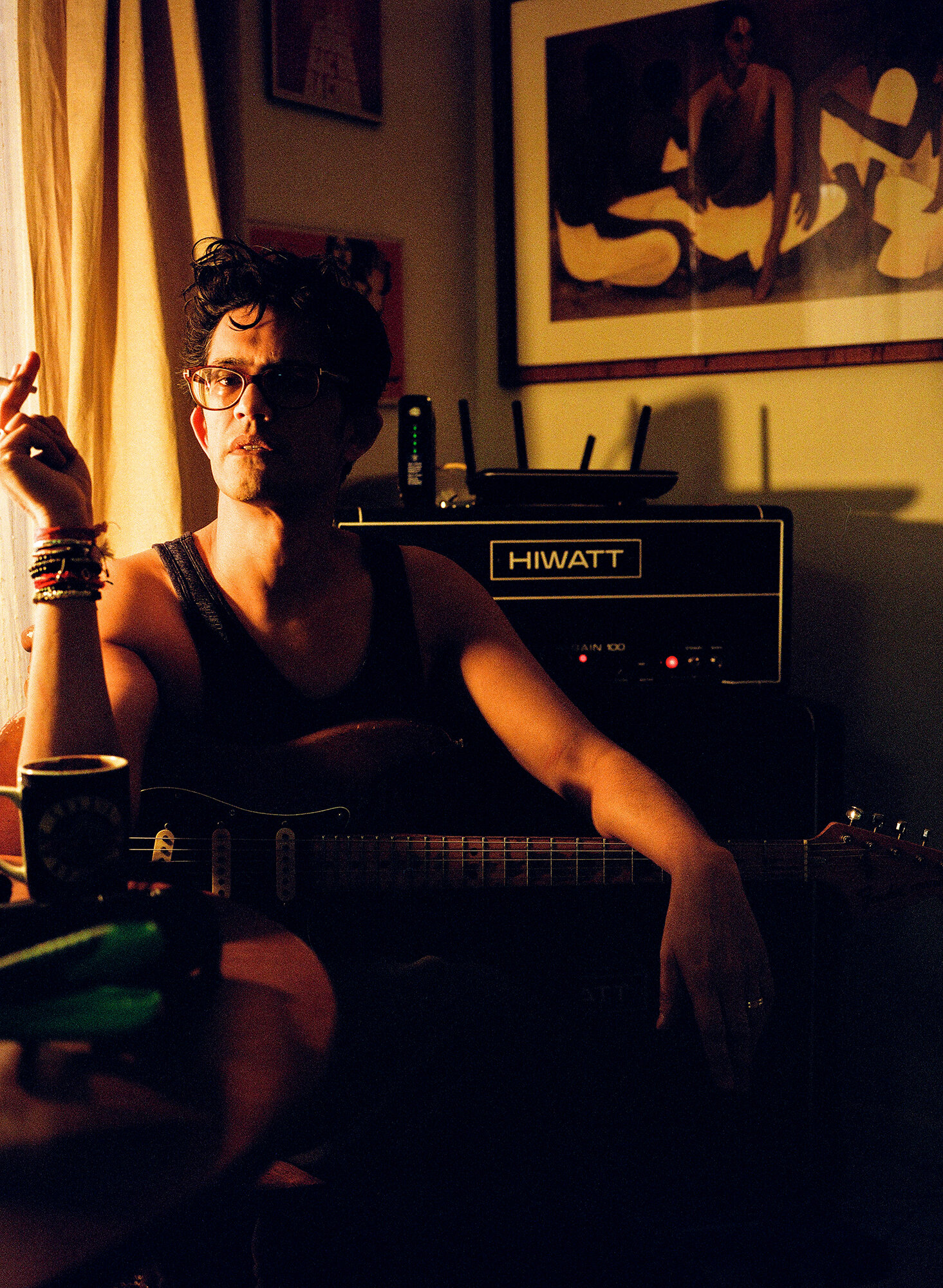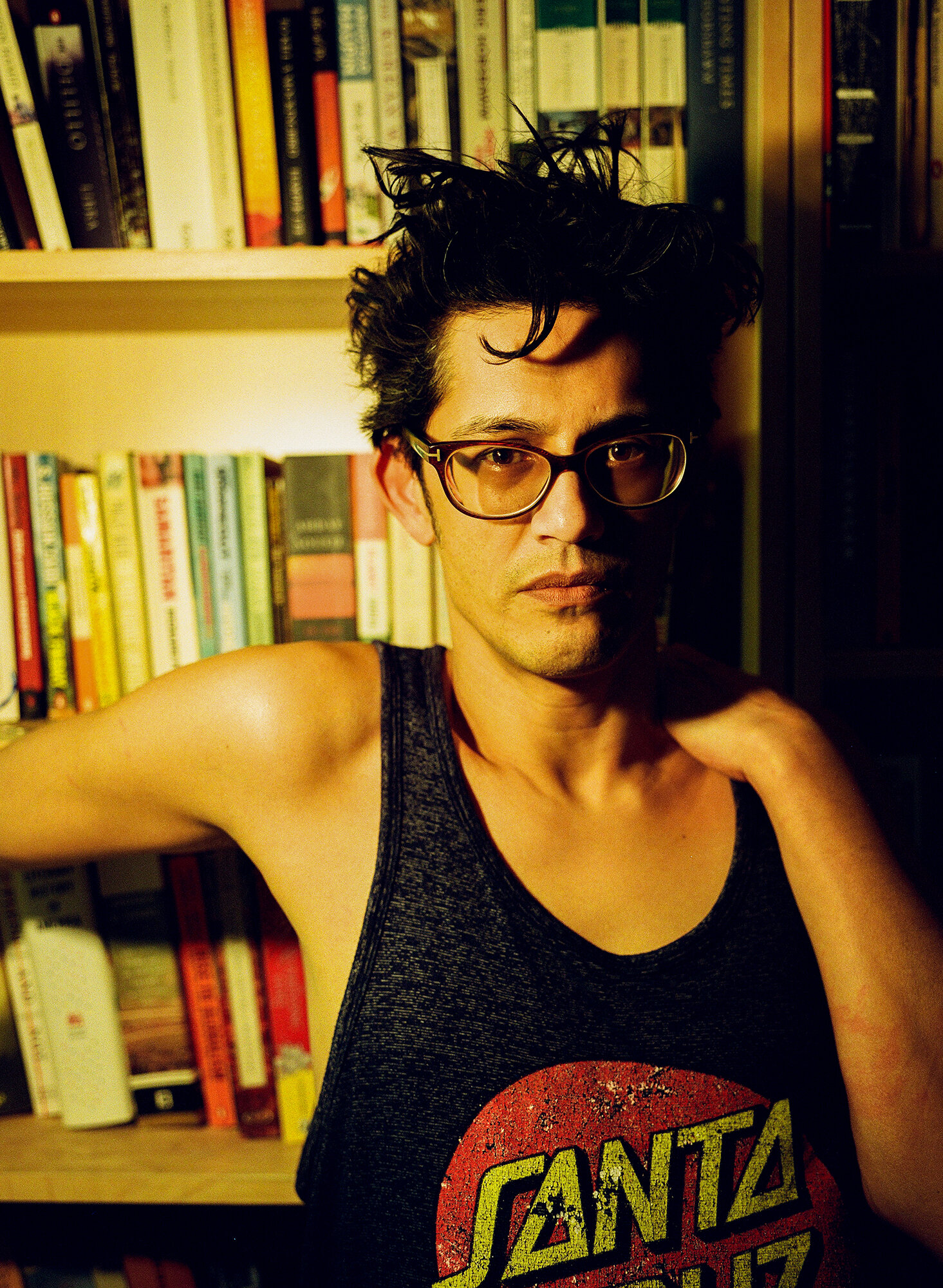Interview #119 — Greg Ng
by Yeo
Greg Ng was born in Johor Bahru in the Year of the Tiger to Indian and Chinese parents. He landed in Melbourne in 1980, where he found tribulation, rock and roll, rebellion and a desire for a better world.
He is a committed teacher and plays guitar in the prominent Australian independent rock band, Snout. He is currently working on his latest solo music project.
Greg Ng speaks to Yeo about growing up in the eighties, how music can save a life, and the complexities of working in the public service.
Snout recently played a show to celebrate the re-release of the ARIA-nominated album Circle High & Wide, which originally landed in 1998. From all reports, it was an excellent night. How did it feel returning to the stage?
It was an excellent night. We’ve played a handful of shows—maybe five?—since 2003. It felt like a long time for me, as I’ve been totally occupied with teaching and haven’t been playing music.
I spent 2018 in a tiny community in the Katherine region. It nearly destroyed me, but I was always in a position to be able to leave, unlike the kids I came to know and love. My life over the past ten years has been the same as it ever was; alongside many moments of wonder and joy, a struggle to feel okay, with a new set of corrosive people and circumstances replacing the old ones.
When you experience trauma and racism from an early age, it limits the possibility for self-esteem and feeling safe in the world. Throughout my life I’ve frequently felt both useless and worthless. Being on stage, playing with Snout, is a reminder for me that there’s one thing I do very well–and I can do it without fear, without a sense that I won’t meet some set of arbitrary metrics, and without regard for anything or anyone else. We love each other dearly. Playing music together always has this love vibe that supersedes everything else, and I think that radiates outwards. People are generally pretty loved-up at Snout shows.
Take us through the highs and lows of your journey from when you were brought out of Malaysia to scoring your first record deal in Australia as a sixteen-year-old.
Melbourne in the eighties was a very different time. From the very beginning I had an extremely strong sense of being unwanted. There was this sort of wildstyle racism in the air, on the walls in texta, in the zeitgeist: Asians out. I remember feeling this sort of resignation and desperation, underpinned with a blanket feeling of futility. I went to a private, single-sex school in Melbourne’s north, and met the entire spectrum of violence. Nowhere was safe at school. That particular school was exceptionally frightful, featuring random and organised violence.
I retreated from the outside world into books. I knew that the ignorance and prejudice around me was wrong, but I also had an understanding that ‘wrong’ had nothing to do with it. Real life had nothing to do with right or wrong. I’d begun to identify with Gandhi and Dr. King; I exercised non-violent resistance and didn’t fight back. It was a horror show. There was other abuse, too, but that’s even more difficult to talk about.
The highs in those early years were all to do with the arts. I remember my mother handing me a book, or taking me to a movie, with the words ‘we should watch this—it’s supposed to be very subversive.’ David Lynch, Heathers, The Catcher in the Rye: this was my oxygen. I developed a very strong sense that art is the mirror of life, and that we have a duty to pay attention to others’ stories. How we act in life should depend upon what we decide after immersing ourselves in other people’s stories.
It sounds like you were self-aware at a very young age. I feel like, thanks to development in media and technology, people are becoming increasingly aware of their own identity at a younger age. Our views on right and wrong also continue to change. How do you see this reflected in the real world?
You know, I don’t think things have changed that much. I remember when Mad Men came out and people made these big shows of being aghast at the society it portrayed—it’s still the same. I hate that easy, self-congratulatory triumphalism. It’s the same people who hear about racism and gasp ‘I can’t believe it.’ I get really annoyed when I read or hear people talking about being ‘woke.’ Particularly in the absence of a critical understanding of history; whatever the current gospel is, it wasn’t always this way and it certainly won’t remain this way.
I developed a very strong sense that art is the mirror of life, and that we have a duty to pay attention to others’ stories.
Earlier, you mentioned something to me that resonates with musicians almost universally–that music saved you. The experience of artistic expression as salvation differs for everyone, but it’s so relatable if you’re a creative person. How did music save your life?
When you grow up around people continually inflicting senseless pain and suffering on others, and you realise that the perpetrators are indistinguishable from the bystanders, you develop independently from the group. I was never the kind of kid that rebelled against authority for the sake of it. My rebellion comes from simply not agreeing with what those in power say and do. The only way to block out the danger that lurked everywhere for me was via my Walkman. I tuned out of school and life and tuned in to music. I used my pocket money to buy a seven-inch single every week. Great eighties pop music; The Bangles, Cyndi Lauper… I even have that Nu Shooz track, I Can’t Wait, somewhere (that’s how you use a sampler, Kanye).
By 1990, I had The Stone Roses thundering in my ears and it made me feel powerful and untouchable. It set my spirit free. I could soar over all of the violence. It was pure hedonism; it made me feel amazing, and I wanted to feel that way all the time. In 1988 I went to visit my Chinese family in Queensland and an extremely charismatic cousin shoved London Calling at me, gave me my first smoke and put an electric guitar in my hands. Back at school, I faced the choice of joining their paramilitary (‘cadets’) or the orchestra. Desultory strumming once a week led naturally to forming a band.
By this time, I had discovered gigs and the practice of hanging around soundchecks and insinuating myself into the company of various bands to circumvent the ID checks at the door. My Bloody Valentine had come to town, and I remember mooning around Kevin Shields and stammering ‘I…I…I’m in a band, too, you know…’ He replied, ‘hey, that’s great, have you got a demo?’ After asking him what a demo was, I made it my life’s purpose. My band was called Afterglow because we were shamelessly enamoured of the ‘shoegazing’ scene, and also because I had just lost my virginity and felt like someone had to pay tribute to this amazing post-sex phenomenon (I looked it up). We submitted our demo to RRR and won a gig at The Punters Club; pretty soon after that we had a seven-inch, put out by Summershine Records.
You were busy in the music scene during the nineties with Afterglow, Snout and DCP, possessing different roles in each of these projects. What was it like switching roles and navigating the industry as an Asian musician?
I never had an explicit plan. I’ve always been guided by my heart and by my instincts. Life for me, as for others who have experienced trauma, has more often been a series of fight, flight or freeze moments. Being sixteen in 1991 was formative. There was incredibly exciting, new music being made–not just hip hop but house music, and techno. There were no barriers, none of this mania for categorisation. My first band split up during a tour of Adelaide–at seventeen I pronounced that I would ‘never’ play music again. I went back to university, dropped out, and at nineteen auditioned for Snout and played with them until I collapsed just before turning thirty. I didn’t learn how to do anything that other people generally learn during their twenties. My sense of transcendence via music was ultimately realised on the dance floor, and that’s still the holiest place for me.
As for navigating my path, a combination of class-privilege, trauma, ability and luck have resulted in what looks like a career. It’s more or less been just me trying as best I can to live a life committed to what I think is right and good and what makes me most happy. Of course, I discovered that in many cases it didn’t make me happy. As could be expected, I’ve endured depression, anxiety, addiction and suicide attempts. I’m older now and I’m past the worse of it, but a lot of it remains.
As far as being an Asian musician in Australia, well, it hasn’t meant anything at all, outwardly. There’s an incredibly powerful force in Australian society to assimilate. It was official immigration policy. First: integrate, then: assimilate. Multiculturalism came later. Assimilation has always meant that even if you don’t do the work, others will do it for you. They ignore your background, they ignore your colour, they make you white with assumptions and omissions. They assume the right to tell the stories and describe the world. They assume the monopoly on ‘rational’ discourse. This is something that women experience all of their lives, and something we need to understand as men. This is also something that White people need to understand about themselves, and us.
There is, of course, the other side of the meek, invisible Asian. The unwanted alien. Blunt examples of that were times on the road when my Snout bandmates Ross and Ewan (who are white) were served at various roadhouses but I was not; when I sat down at public rest areas and every white person got up and left, or the feeling of journeying deep into Pauline Hanson territory, alarmed and scared, in the late nineties.
Let’s talk about genre for a moment. You implied that back in 1991, there was no need for categorisation, and now there’s a mania for it. Why are things different now?
Things are different now because of advances in technology and capitalism. Marx made the point about capitalism constantly revolutionising production and consumption, constantly expanding and creating new markets, new products, and by extension, revolutionising the whole of society. Most recently, we have to some extent all delighted in the degree to which we can categorise and atomise our existence. As Gramsci suggested; we willingly do the work of the dominant system, while believing that we’re advancing our own interests.
In your opinion, what’s the deepest problem in our industry that has been highlighted by your personal experience, and how could we try to fix it?
The biggest problem is ignorance, chauvinism and prejudice. And also, fake-ass motherfuckers. Snout were very lucky to have three kindred spirits in each other; our van or hotel room was a travelling safe room. We used to struggle with the sort of shit that would come out of people’s mouths. Casual racism. Objectifying women. Deifying the stupid, shallow, ‘rock’ lifestyle of white male privilege. There are a lot of musicians and camp-followers who establish and maintain power and needless hierarchical structures.
I used my pocket money to buy a seven-inch single every week.
Explain your perspective on the visibility and audibility of Asian diaspora in the musical landscape of Australia, and how it has affected Asian-Australians as a whole. What has changed over the years?
The music industry doesn’t encourage perspective. It’s an insular life. You’re in a van, driving, or on a plane, or in some room, or in a studio. When I was coming up, I think there were maybe three Asians among our musical peers? It was a long time ago. As far as change, I only discovered LIMINAL in the last three or four weeks and it blows my mind to see all the brothers and sisters who are representing. I mean, I’m forty-four and I haven’t been making music or paying attention to ‘the scene’ at all for probably about a decade.
It’s taken me a long time to disassociate music with the depression, addiction, and spectacular flameouts that I brought upon myself and the people I love. Up until now I’ve found it to be too difficult to engage, so I’ve missed everything that’s been happening. Naturally, I have misgivings about ‘community’ as a concept and as a reality. I’ve never been part of any large group; I learned that it wasn’t possible for me from a very early age. I’ve developed into someone who is most happy being solitary.
In the current day, you make a living as an honourable public servant, describing yourself as a teacher with a desire to fight injustice. You’ve also got plans to make music again after a long silence. What diverted your path away from music, and what’s inspiring your return?
I didn’t stop playing music; I crashed out of music. Having discovered teaching as a calling has been a mixed blessing. Dedicating myself to children, education and public service is exactly what I needed following my less-than-graceful exit from music, but I’ve found it difficult to earn a living as a teacher, at least in a secure sense. Public education is now subject to the strictures of Neoliberalism; we’re all supposedly rational, utility-maximising individuals operating in the perfect environment for such creatures. Bullying and trauma have also remained constants in my professional life.
2018 was the pinnacle of ill-treatment at the hands of school-staff, alongside the incredible amount of trauma that gripped the people in the community I lived and worked in. The desperation and violence of life in that community was not due to their own mob. I couldn’t describe the racism up there; personal, structural, systemic. I’m just not up for hearing another Melbourne person describe it as ‘unbelievable.’ It is, and it should be believed.
I find myself starting over in 2019. Yes, more music from me is coming. I’ve started recording. I think it will be quite good.
Naturally, I have misgivings about ‘community’ as a concept and as a reality.
Do you have any advice for emerging musicians?
It’s 2019 and there are still people who don’t have enough food to eat, there’s still not equal pay, 100% of all children locked up in the NT are black, somewhere some kids just got blown up by a drone, soon we will have a world without tigers, our government systematically incarcerates and tortures the most vulnerable humans in the world and keeps it secret, and the music you make is not separate from that.
Who are you inspired by?
Sly Stone, Gandhi, Slash, Derrick May, Beyoncé, Karl Marx, James Baldwin, Aretha Franklin, Margaret Atwood, JJ Abrams, Laura Tingle, Merry Clayton, John Steinbeck, Ang Lee, Chuck D, my dog Ishka, Johnnie To, David Simon, Malala, Greta Thunberg, Rosa Parks, Jenji Kohan, Bong Joon-ho, Baker Boy…
How do you practice self-care?
I ensconce myself in a world cut off from commercial media, filled with books and Radio National. I avoid groups of people and I’m utterly devoted to my Kelpie-cross.
What does being Asian-Australian mean to you?
Unfortunately, it still means being subjected to overt and casual racism; but it also means I can lead an inner life that’s fortified by the best aspects of all of my cultures. Being Australian to me means being free to be able to do, see, think, say and be whatever I want, and I don’t take that for granted. I’m old school. You come to a new country, it’s a better life than you otherwise would have had; you dedicate yourself to public service, giving back. We have a duty to one another; we have to get back in touch with that.
…our government systematically incarcerates and tortures the most vulnerable humans in the world and keeps it secret, and the music you make is not separate from that.
Find out more
Interview & Photographs by Yeo





